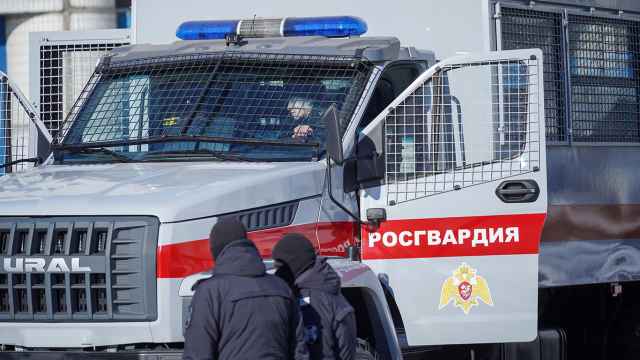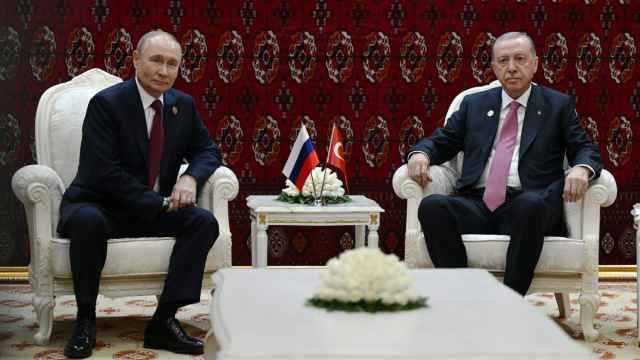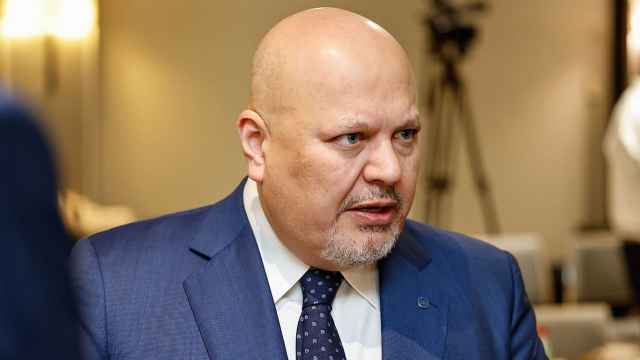Attempting to travel to Canada could automatically land a Russian national in prison for four years from Monday because answering new visa application questions amounts to divulging state secrets, a tourism association said Thursday.
Under the new rules, non-immigrating applicants who have served in military, police or civil defense units are required to identify their unit and provide its location.
But disclosing such information is a criminal offense in Russia, said Irina Tyurina, a spokeswoman for the Russian Travel Industry Union.
The rules, which apply to any person who wants to visit Canada for work, leisure or study, came into force Oct. 14, but visa applicants are allowed to fill out the old forms until Monday.
The rules aim to speed up the processing of applications, Russia's Foreign Ministry said in a statement Oct. 15, citing the Canadian Embassy in Moscow.
Tyurina said by telephone that the Russian Travel Industry Union asked the ministry to comment on the matter Wednesday and was still waiting for a reply.
Foreign Ministry spokesman Alexander Boldyrev refused to comment on the issue Thursday.
Canadian Embassy spokesman Nicholas Brousseau was not available on his cell phone Thursday afternoon.
Nathan Hunt, president of the Canada Eurasia Business Association, said the visa change might harm economic ties between the two countries.
"I fear that the consequences can have a negative effect on trade between Russia and Canada," Hunt said.
But Alexander Khramchikhin, a senior analyst with the Institute of Political and Military Analysis, said real consequences were unlikely because Russian authorities have no access to Canadian visa applications and thus cannot establish whether classified information was divulged.
Moreover, information on military units does not constitute a state secret in many cases because many were disbanded, reformed or renamed after the Soviet collapse, Khramchikhin said.
Canada has earned some notoriety in the past for its detailed visa forms and strict rules for applicants, including high-profile people. In September 2009, the country refused a visa to Federation Council Senator Mikhail Margelov ahead of an international parliamentary conference in Ottawa. No explanation was provided for the decision.
Another senator, Vitaly Malkin, has failed to obtain a Canadian visa for more than a decade because the country's authorities said they feared he might have links to organized crime.
Mikhail Lennikov, a former KGB officer who moved to Canada, has been waging a court battle since 2004 against a decision by the authorities to deport him as a security threat.
A Message from The Moscow Times:
Dear readers,
We are facing unprecedented challenges. Russia's Prosecutor General's Office has designated The Moscow Times as an "undesirable" organization, criminalizing our work and putting our staff at risk of prosecution. This follows our earlier unjust labeling as a "foreign agent."
These actions are direct attempts to silence independent journalism in Russia. The authorities claim our work "discredits the decisions of the Russian leadership." We see things differently: we strive to provide accurate, unbiased reporting on Russia.
We, the journalists of The Moscow Times, refuse to be silenced. But to continue our work, we need your help.
Your support, no matter how small, makes a world of difference. If you can, please support us monthly starting from just $2. It's quick to set up, and every contribution makes a significant impact.
By supporting The Moscow Times, you're defending open, independent journalism in the face of repression. Thank you for standing with us.
Remind me later.





